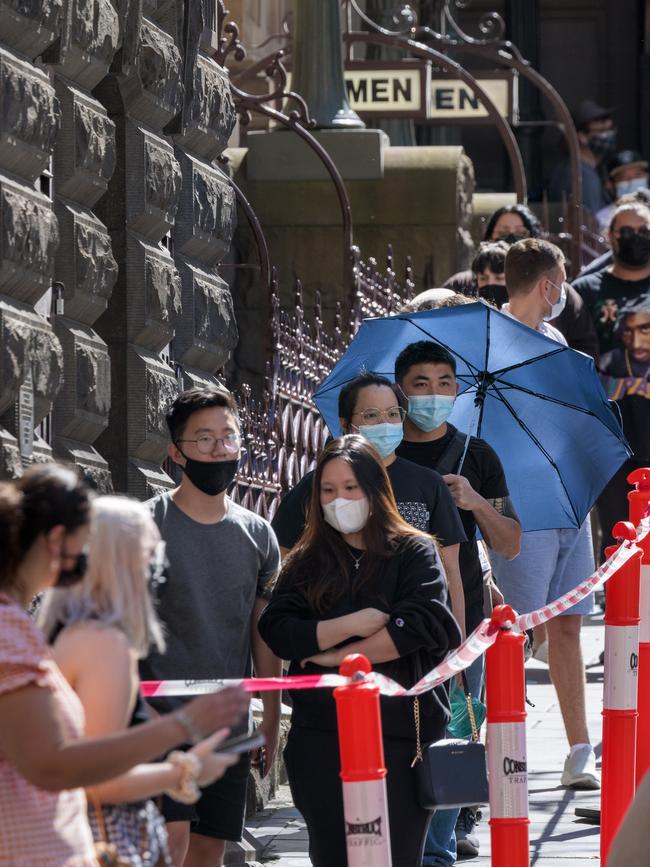Covid disruptions may lead to more than 1000 bowel cancer deaths
In a surprising fallout from the Covid-19 pandemic, new research has found it could result in more than 1000 bowel cancer deaths.

Australia could have more than 1000 bowel cancer deaths over the next six years after Covid disrupted screening, according to new research.
An Australian-led study has found disruptions brought on by Covid could lead to 1186 deaths between 2020 and 2030, as well as another 234 cancer cases of bowel cancer.
Bowel cancer is the fourth most common type of cancer, with an estimated one in 20 people diagnosed by the age of 85 according to the Cancer Council.
It is one of the only cancers that can be screened in Australia, and can be fatal if not caught and treated early.
Current screening participation rates for bowel cancer are sitting at about 40 per cent.
However, there was a seven per cent decrease during the pandemic according to the new report, published by PLOS One, with researchers from the University of NSW, the Daffodil Centre, and the Cancer Council of NSW.


The study also found there was a seven per cent decrease in treatment and an 11.7 per cent decrease in diagnoses.
Lead researcher Joachim Worthington said one factor into the decreased screening rates during the pandemic could likely be chalked up to concern of catching Covid.
“In terms of screening, I think a lot of it is people were worried about accessing their health system, being worried about going into hospitals or their GPs because they didn’t want to get Covid, or people just having other priorities over that time period and getting out of the habit of bowel screening,” he said.

The study found there was potential for 344 fewer deaths than the predicted 1186 if regular bowel cancer screening and testing returned, with Dr Worthington urging Australians to get tested.
“It’s a bit doom and gloom, but we want to really emphasise that those 1000 cases are over the next 10 years, that’s if we assume that people missed out on screening over the 2020 and 2021 period,” he said.
“They put off going to the doctors, they put off getting treatment, and they don’t necessarily return to that treatment.
“But of those 1000 deaths, many of them could be avoided if people get in there and do the test.”
He encouraged Australians to do the test as soon as it came in the mail and avoid putting it off, as screening was the best way to detect bowel cancer early.
“If a bowel cancer is detected at stage one, you can have an up to a 99 per cent survival rate, so that’s really good,” he said.
“However, at stage one, it’s really unlikely that you’ll get any symptoms so you won’t know that that’s growing inside you.”




